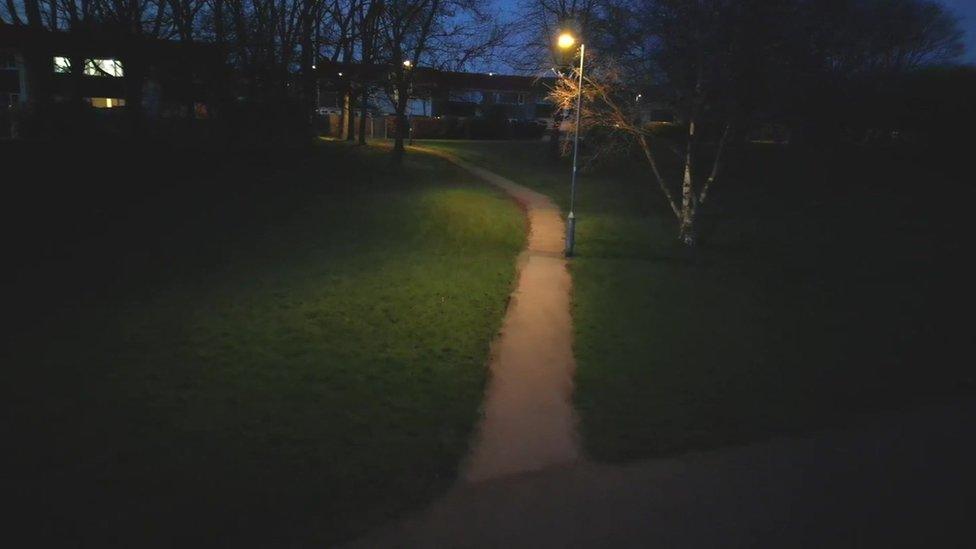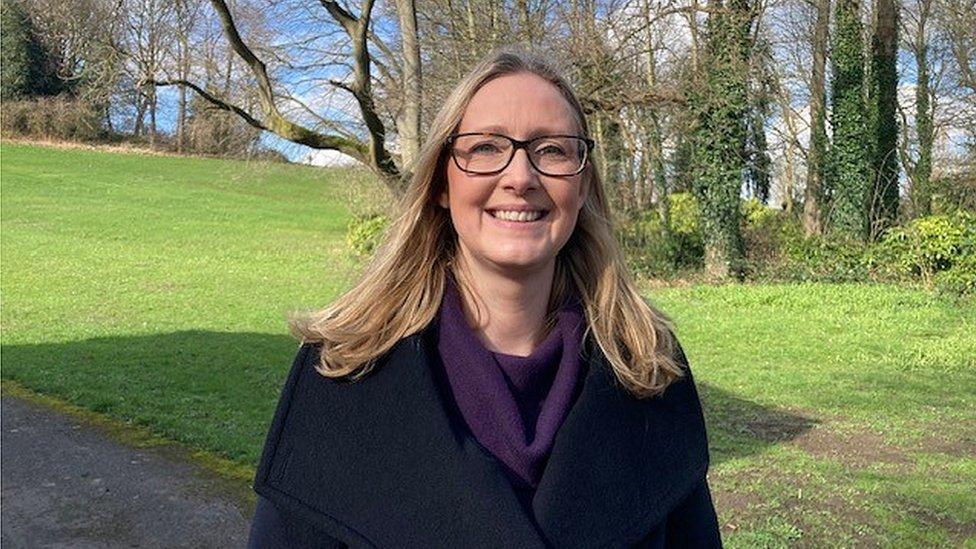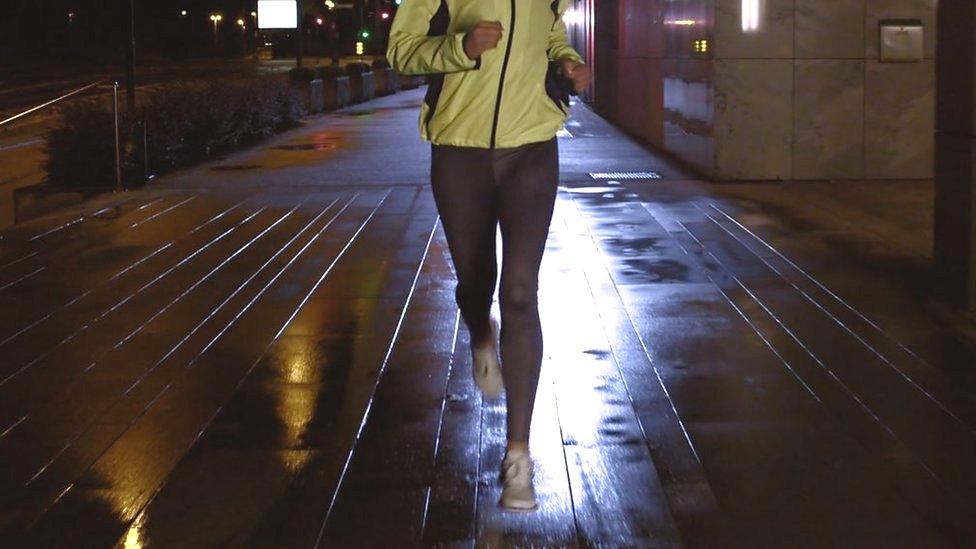West Yorkshire park staff trained in handling harassment cases
- Published

University of Leeds research suggested 97% of women in West Yorkshire felt unsafe in their local park after dark
Park staff and volunteers in West Yorkshire are among the first in the country to be trained in helping to tackle street harassment of women.
About 80 people are receiving new skills as part of a pilot to make parks and green spaces safer for all.
More than 100 women were interviewed for a study by the University of Leeds, with 97% reporting feeling unsafe after dark in their local park.
The training has been developed with charity the Suzy Lamplugh Trust.
It teaches basic principles to help people become "active bystanders" and gives tips on how to intervene safely in situations where women are threatened, the charity said.
Alison Lowe, deputy West Yorkshire mayor for policing and crime said: "It is unacceptable that so many women and girls do not feel safe in parks, which is why we've led on this pioneering work across West Yorkshire and beyond."

Distract, Delegate, Document, Delay, and Direct Intervention
Distraction: Ignore the person harassing and engage directly with the person who is being harassed, with the conversation focused on something completely unrelated
Delegation: Ask a third party for help with intervening
Document: Record or take notes on the harassment
Delay: Once the event is over, stay with the victim and ask if there's any way you can support them
Direct intervention: Challenge the perpetrator directly, but only if it is safe to do so
Source: Suzy Lamplugh Trust

Rachel Winstanley, who was recently trained, helps run music events in Clarence Park in Wakefield and has had trouble in the past with men hanging around while she is setting up.
She sasid she has also witnessed women being harassed at gigs.
Ms Winstanley said the training had helped her feel better able to intervene in future.
"Sometimes I'm in the park from seven in the morning to twelve o'clock at night," she said.
"I have a lot of experience with people in the park and bystander training has been really great and effective at giving me ideas on how to manage people."

Dr Anna Barker, who organised the training, says "everyone has a responsibility for women's safety"
Organiser Dr Anna Barker, from the University of Leeds School of Law, said: "Women and girls felt that it was safer to ignore than challenge unwanted comments and attention in parks, to avoid escalation and unsafe situations.
"Yet, leaving male harassment unchallenged perpetuates injustice and doesn't change the status quo."
It is hoped that further training sessions could be offered across the region.

Follow BBC Yorkshire on Facebook, external, X (formerly Twitter), external and Instagram, external. Send your story ideas to yorkslincs.news@bbc.co.uk, external.
Related topics
- Published6 March 2024

- Published10 March 2022
